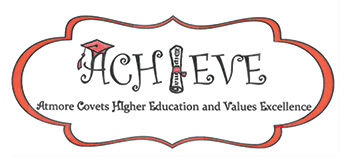
By DR. ERICA LITTLE, DNP, RN
Special to Atmore News
Times are changing and so is healthcare. It is no doubt that everyone has read about medical advancements such as new technology, robotic surgery, and of course all the new medications coming out. The research end of healthcare is upgrading and changing because the needs of our patients are changing and becoming more complex. Nurses need to keep up with the changes as well. Educating our nurses is the only way to stay abreast of the healthcare changes.
Because the patients’ needs are changing, the nurse needs to be educated on how to take care of these patients. The education that nurses received in the 20th century was geared toward the more acute patient and is no longer adequate for dealing with health care in the 21st century. The patients now are presenting with chronic illnesses.
Acute means sudden in medical terms. It would include patients who contract an illness like the flu or have an ear infection. It could also include someone who acquired an injury. Chronic illness is a disease that has a slow progression that builds over time and tends to be a long-lasting problem. Some examples of chronic illnesses are diabetes, congestive heart failure, and stroke.
Because the patients’ needs and care have become more complex, nurses need to have the competence to deliver high quality care. The role of nursing has also expanded to include mastering technology. Healthcare has taken on a team approach and nurses need to learn to collaborate to coordinate care to meet the needs of the population.
The Institute of Medicine (IOM) recommends an increase in the proportion of nurses with a baccalaureate degree to 80 percent by 2020. The IOM, in the report, state that to be able to respond “to the demands of an evolving heath care system and meet the changing needs of patients, nurses must achieve higher levels of education.” Several studies have found that patients have a higher success rate at hospitals with a higher proportion of bachelor degree nurses.
Atmore Community Hospital (ACH) is also changing with the times. Several of the nurses at ACH have returned to school for their bachelor degree. This proves that they are committed to the care of their patients and take to heart a section of the Nightingale Pledge they recited upon graduation: “I will do all in my power to maintain and elevate the standard of my profession.” Continuing education is one way nurses hold themselves to a high standard of care.
As we all know, education is not free. To enable our Atmore nurses to return to school, the ACHIEVE Scholarship has been started. ACHIEVE stands for Atmore Covets Higher Education and Values Excellence. This scholarship was started to help our nurses achieve their goal of obtaining their bachelor degree. They understand the importance of a higher education to care for our Atmore residents and we understand the importance of supporting them in this decision.
Some Atmore businesses have pledged $100 to help reach the $1,000 goal of the scholarship committee. A personal challenge has been set forth to other Atmore businesses to participate in pledging $100. The money will be awarded to an Atmore nurse who cares for our Atmore residents.
Be watching for fundraising events and support us in any way you can.
Please email Dr. Erica Elkins-Little at ericaelkinslittle@gmail.com to pledge, donate, or inquire about the scholarship or this article.
